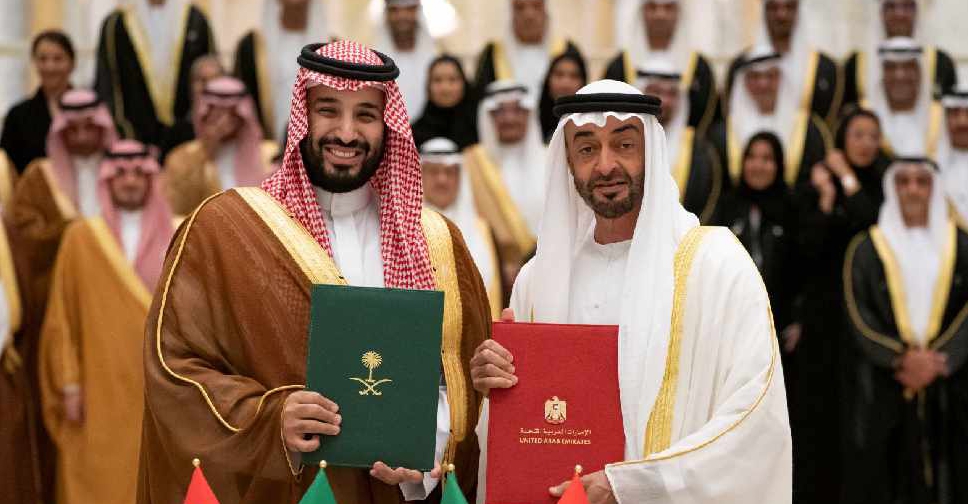
As the Saudi Crown Prince, Mohammed bin Salman bin Abdulaziz Al Saud, wraps up a successful two-day visit to the UAE, a joint statement was issued by the UAE and the Kingdom highlighting their stance on regional developments.
Mohammed bin Salman, who is also the Deputy Prime Minister and Minister of Defence of Saudi Arabia, is on a tour of the Gulf countries, including the UAE, Oman, Bahrain, Qatar and Kuwait.
After high-level meetings with UAE leaders including His Highness Sheikh Mohamed bin Zayed Al Nahyan, Crown Prince of Abu Dhabi and Deputy Supreme Commander of the UAE Armed Forces, and His Highness Sheikh Mohammed bin Rashid Al Maktoum, Vice President and Prime Minister of the UAE and Ruler of Dubai, a joint statement was released.
التقيت اليوم أخي الأمير محمد بن سلمان في إكسبو دبي ٢٠٢٠.. وسيكون العالم على موعد مع إكسبو الرياض ٢٠٣٠ باذن الله وبجهود الأمير محمد .. أكدت للأمير بأننا نتطلع أيضاً لقمة الرياض القادمة .. وشعوب الخليج تنتظر منا أفكار ومشاريع جديدة وعظيمة … pic.twitter.com/sQjDZoWqmP
— HH Sheikh Mohammed (@HHShkMohd) December 8, 2021
This statement looks at the official policy adopted by the two countries to manage regional interactions and maintain stability in the long term.
It comes as both the countries achieve high levels of economic unity, joint defence and security systems pillars, as well as positions of solidarity and stability amid GCC countries.
Palestine
Both sides reiterated their “full support for all the legitimate rights of the Palestinian people,” notably, their right to establish an independent Palestinian state with East Jerusalem as its capital.
This move will be per the Arab Peace Initiative, the relevant United Nations Security Council (UNSC) resolutions, and the Madrid Conference references.
The Arab Peace Initiative was an effective peace plan that compels Israel and Palestine to end conflict, normalise ties between the Arab world and Israel, and reestablish areas claimed by Israel and disputed by Palestine.
Yemen
As for Yemen, the statement said that both countries will continue their efforts to reach an overall political solution to the crisis in accordance with the terms of reference represented by the Gulf initiative, the outcomes of the Comprehensive National Dialogue Conference and the UNSC Resolution 2216 that imposes a targeted arms embargo.
Saudi said it seeks to reach a comprehensive political resolution in a manner that “preserves Yemen’s unity and integrity, respects its sovereignty and independence and rejects any interference in its internal affairs.”
They also stressed the need to complete the implementation of the Riyadh Agreement. This agreement focused on “ending a power struggle over the control of the South that risked further fragmenting Yemen,” according to a document published by the Embassy of the Kingdom of Saudi Arabia in 2019.
Parallelly, the two sides also condemned the Houthi’s continued targeting of airports, civilians and vital facilities in Saudi Arabia.
Lebanon
Regarding Lebanon, the two sides emphasised the importance of implementing political and economic reforms to ensure that the country overcomes its crises and “redirects weapons to legitimate state institutions,” according to the same statement.
They also stressed that Lebanon would not be a starting point for any violent groups that target the security and stability of the region.
The country’s harmful drug problem also received mention, stating that it “threatens the safety of societies, the region and the world.”
Iran
UAE and Saudi Arabia underscored the importance of dealing “seriously and effectively with Iran’s nuclear and missile dossier.”
Regional and international security and stability are the two aspects highlighted in the statement. The countries hope and expect to align with the principles of “good neighbourliness, the UN resolutions and international legitimacy, and sparing the region from all destabilising activities and interventions.”
The statement was issued after a UAE delegation, including National Security Adviser Sheikh Tahnoun bin Zayed Al Nahyan, visited Iran to discuss bilateral relations on December 6.
Syria
Both UAE and Saudi highlighted their support to the Syrian people and the need to support the international humanitarian efforts in Syria.
The UAE has long supported Syria through humanitarian cases, including sending multiple flights carrying medical aid during the pandemic.
The sides also affirmed that a political solution is the only way out of the Syrian crisis, announcing their support for the efforts of the UN and its Special Envoy to implement the relevant international resolutions.
The UN Security Council Resolution No. 2254 was marked as an essential guideline. It expresses support for a Syrian-led political process facilitated by the United Nations would establish “credible, inclusive and non-sectarian governance” and stop regional interventions and projects that threaten Syria’s unity, sovereignty and territorial integrity.
Iraq
The statement welcomed the success of the electoral process in Iraq.
Both UAE and Saudi expressed interest in forming an Iraqi government that will continue to work towards enhancing Iraq’s security, stability and development, and putting an end to violent activities and foreign interference in its internal affairs.
Sudan
The sides also welcomed the agreements reached by the parties to enter a transitional phase in the official running of Sudan.
However, the new statement on Sudan’s current political affair is a reiteration from November 22, when the Ministry of Foreign Affairs and International Cooperation added that the Emirates is “keen to strengthen ties with Sudan and expand the scope of cooperation.”
Both the UAE and Saudi affirmed their continued support for any steps that would help achieve security and stability in Sudan.
Afghanistan
The UAE said it supported Saudi Arabia’s invitation to an extraordinary ministerial meeting of the Organisation of Islamic Cooperation countries to discuss the situation in Afghanistan.
The event will be held in to be held in Pakistan on December 19.
Saudi Arabia, meanwhile, commended the UAE’s efforts in the evacuation operations in Afghanistan and stressed the importance of supporting security and stability in Afghanistan.
Parallelly, they condemned any acts to recruit Afghan refugees in various conflict areas.
Bilateral Ties
In addition to issuing statements on neighbouring states, both the UAE and Saudi discussed the developments on OPEC Plus, climate change, and other relevant, shared progress.
The UAE and Saudi Arabia share close ties and a balanced outlook on oil demand and production.
OPEC Plus has successfully restored stability to the global oil market, made possible by bilateral cooperations, and the commitment of the member states.
The statement said that both countries would honour and continue their joint cooperation in the field of oil, gas and petrochemicals, as well as in the peaceful use of nuclear energy, oil products trade, capitalising on the electricity connectivity and the electricity trade exchange, artificial intelligence, digital transformation, cybersecurity and advanced technologies.
As fossil fuels were explored, climate change was a large part of the policy.
Both UAE and Saudi Arabia said they are keen to strengthen their ongoing cooperation in implementing the circular economy approach.
This is a comprehensive framework aimed at addressing the challenges resulting from emissions that cause global warming.
The UAE’s role in addressing climate change, most notably its hosting of COP28 in 2023, was given special mention.



 UNESCO inscribes Sharjah’s Faya to World Heritage List
UNESCO inscribes Sharjah’s Faya to World Heritage List
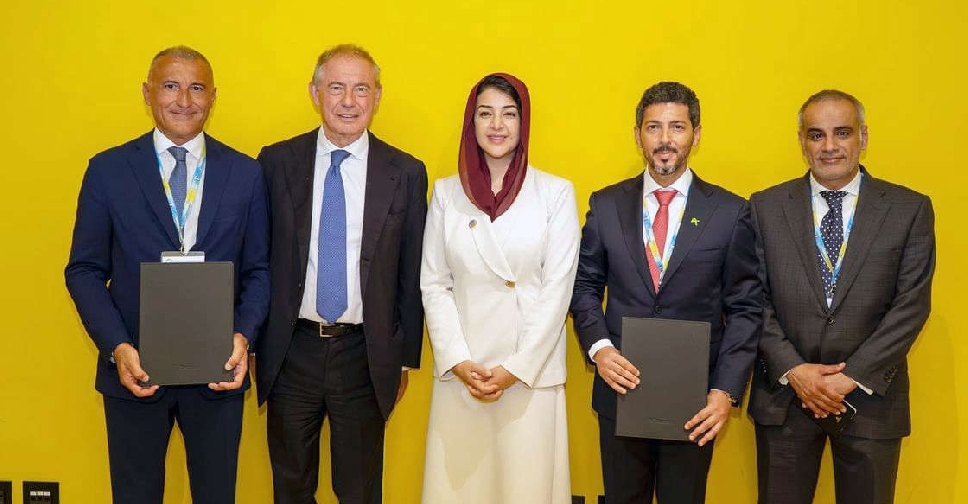 UAE backs Ukraine’s rebuilding efforts with new partnerships
UAE backs Ukraine’s rebuilding efforts with new partnerships
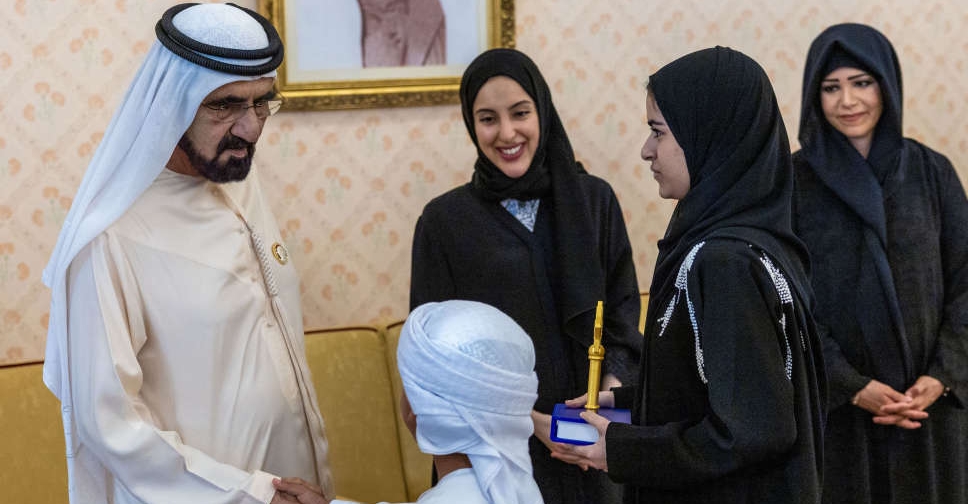 H.H. Sheikh Mohammed highlights key role of public-private partnership
H.H. Sheikh Mohammed highlights key role of public-private partnership
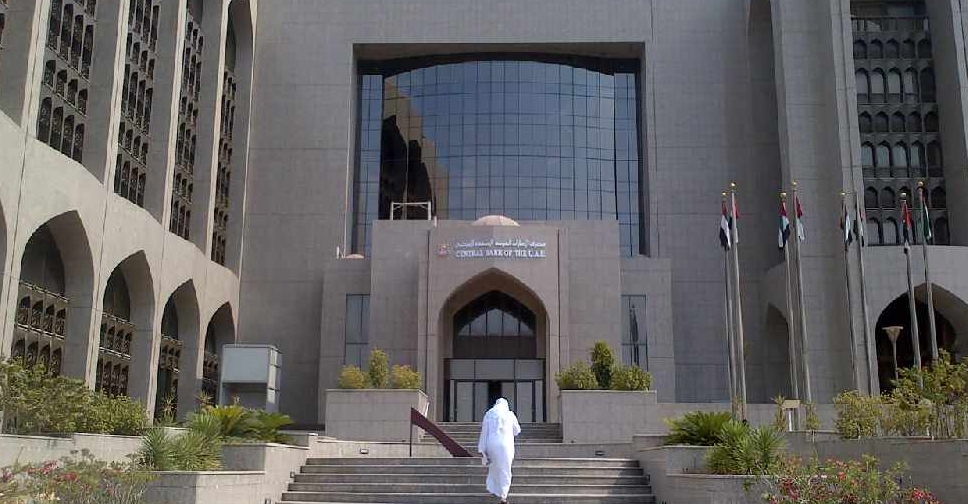 UAE Central Bank revokes licence of Al Khazna Insurance Company
UAE Central Bank revokes licence of Al Khazna Insurance Company
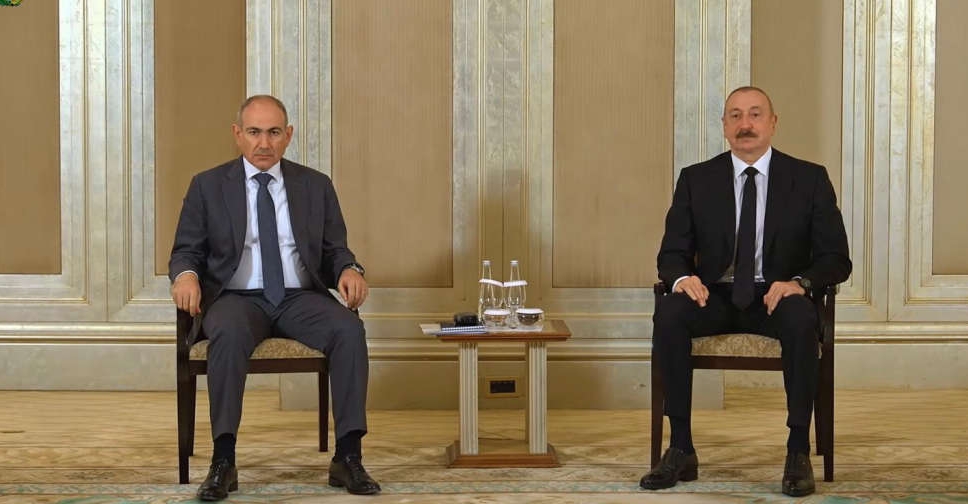 UAE hosts talks between leaders of Armenia and Azerbaijan
UAE hosts talks between leaders of Armenia and Azerbaijan
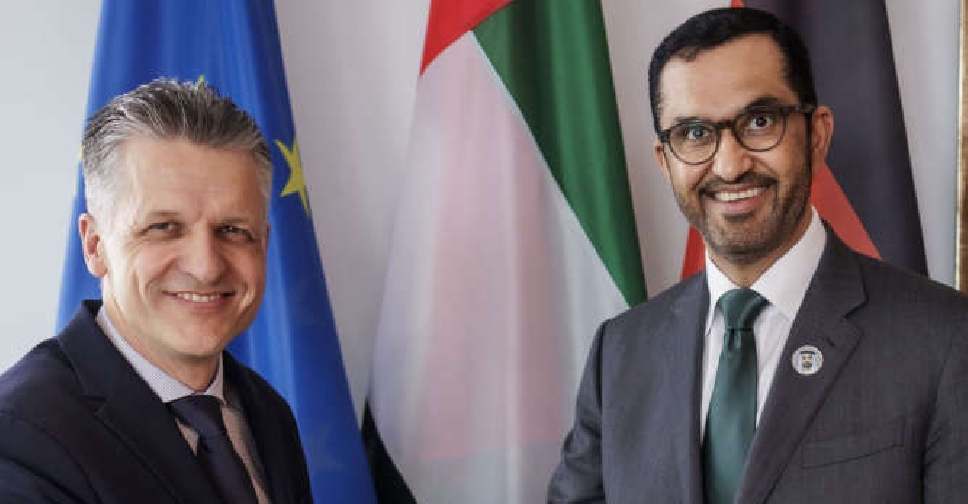 Sultan Al Jaber hands over UAE President's 'message' to German Chancellor
Sultan Al Jaber hands over UAE President's 'message' to German Chancellor
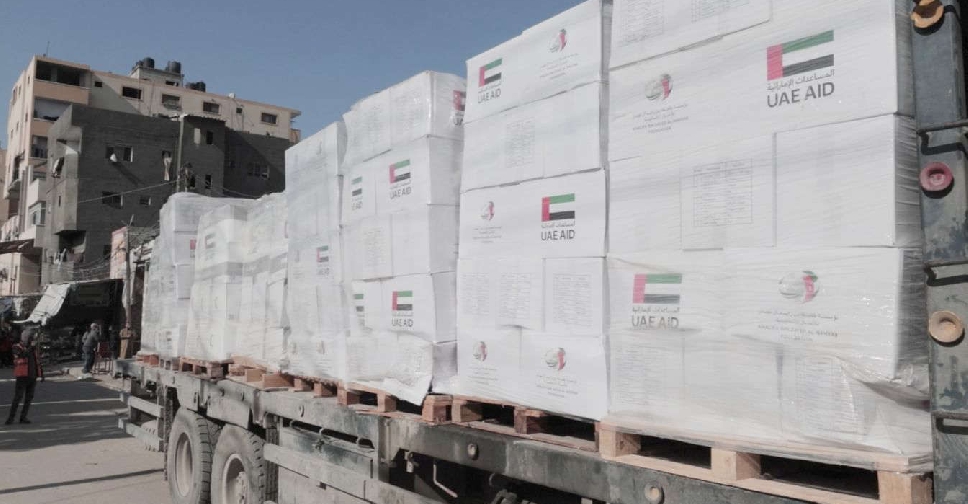 New UAE aid convoy delivers vital supplies to Gaza
New UAE aid convoy delivers vital supplies to Gaza
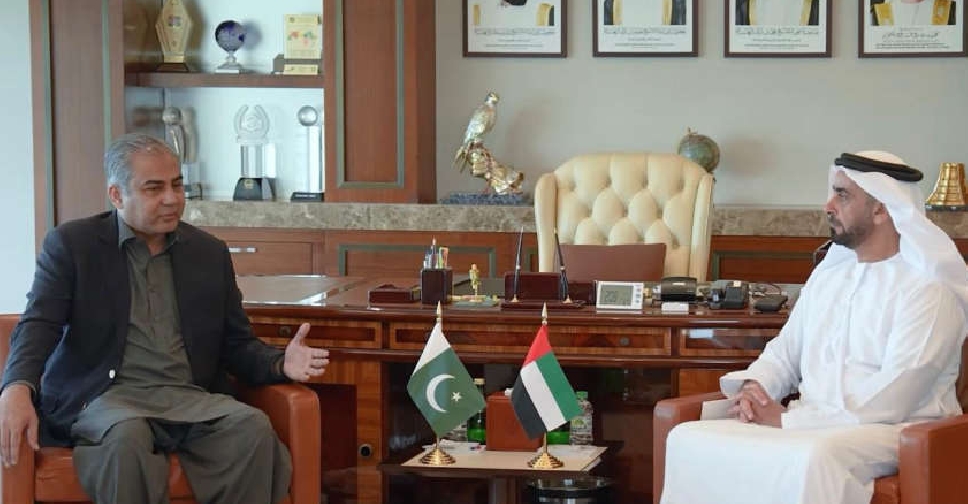 UAE, Pakistan focus on boosting security cooperation
UAE, Pakistan focus on boosting security cooperation
 Dubai cracks down on non-compliant tourist, chartered bus operators
Dubai cracks down on non-compliant tourist, chartered bus operators
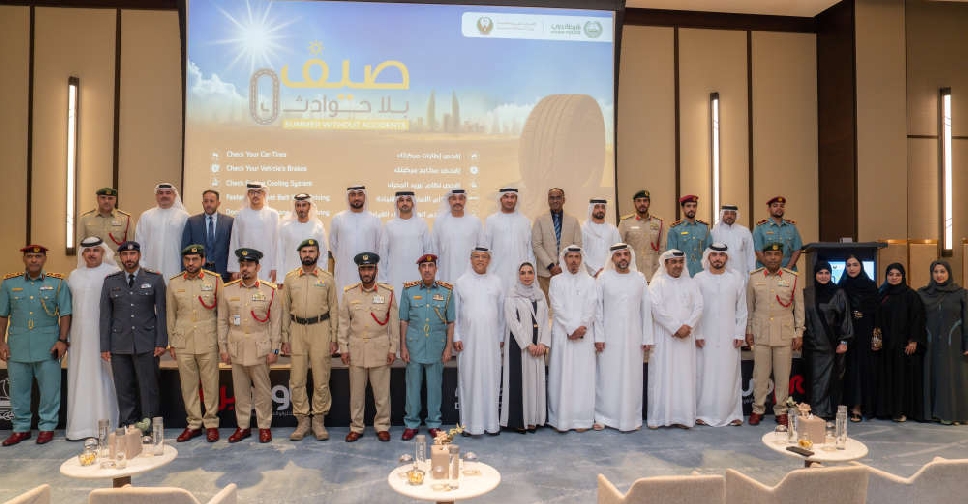 Dubai Police boost road safety with 'Summer Without Accidents'
Dubai Police boost road safety with 'Summer Without Accidents'
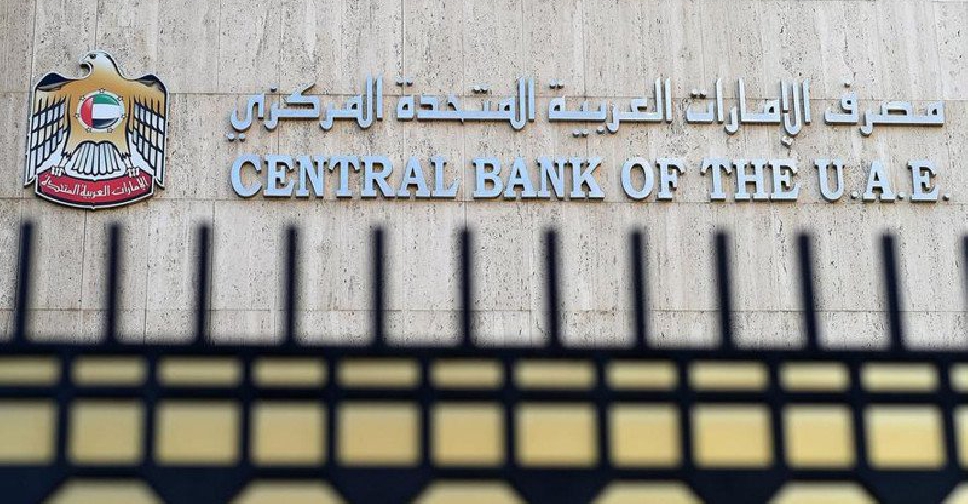 UAE bank faces hefty fine for breaching anti-money laundering rules
UAE bank faces hefty fine for breaching anti-money laundering rules
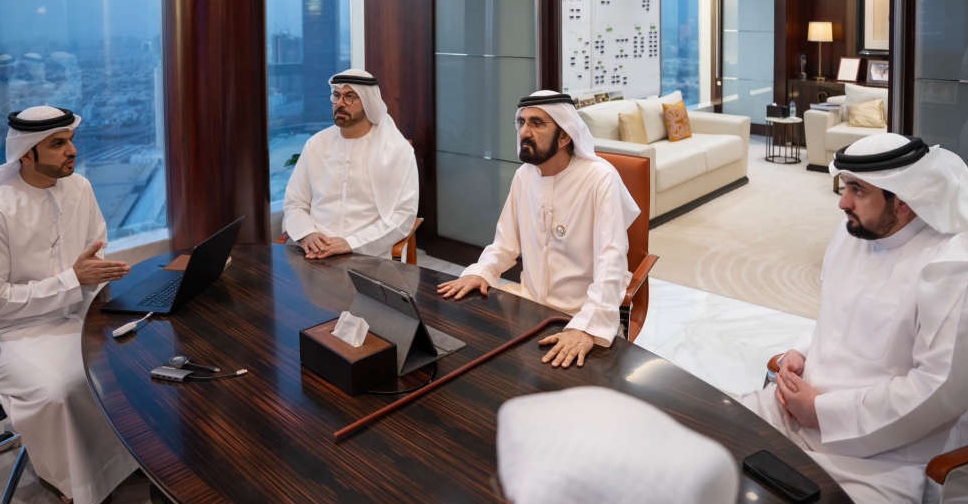 H.H. Sheikh Mohammed unveils AI-powered system to improve federal sector
H.H. Sheikh Mohammed unveils AI-powered system to improve federal sector
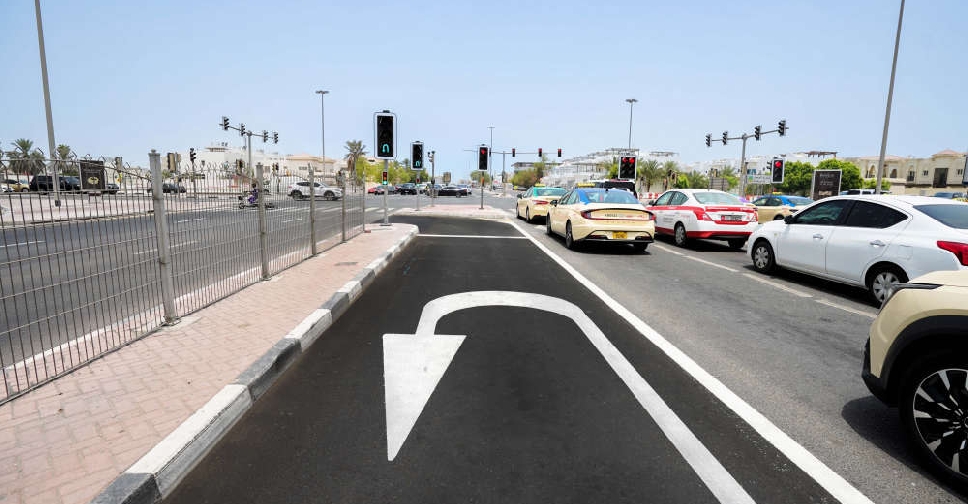 Road capacity boosted by 50% at Al Wasl-Al Manara intersection
Road capacity boosted by 50% at Al Wasl-Al Manara intersection
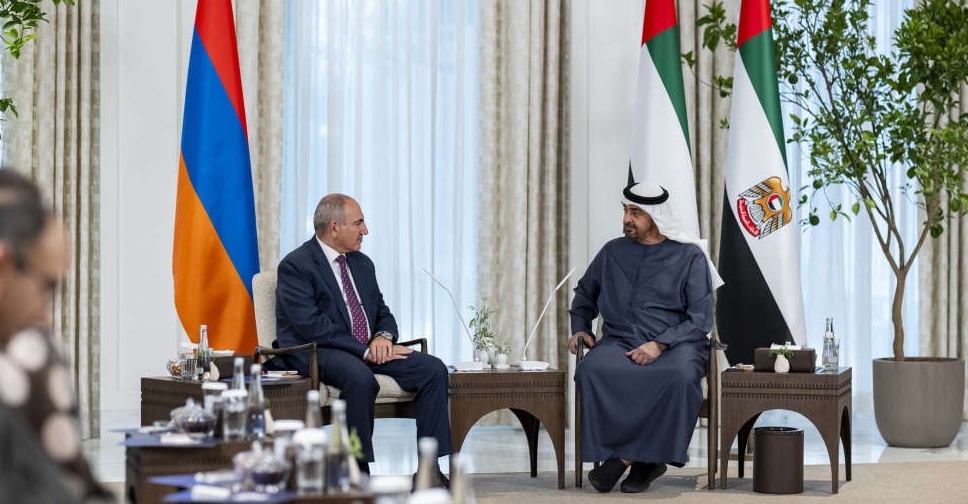 UAE President, Armenian Prime Minister deepen bilateral cooperation
UAE President, Armenian Prime Minister deepen bilateral cooperation
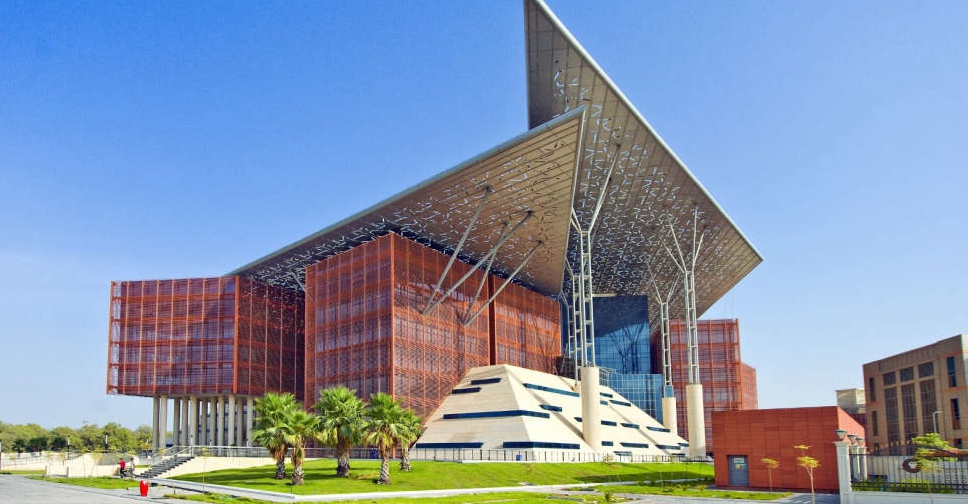 Abu Dhabi court halts trademark infringement in landmark ruling
Abu Dhabi court halts trademark infringement in landmark ruling
 Parkin to manage select free parking areas owned by Dubai Municipality
Parkin to manage select free parking areas owned by Dubai Municipality
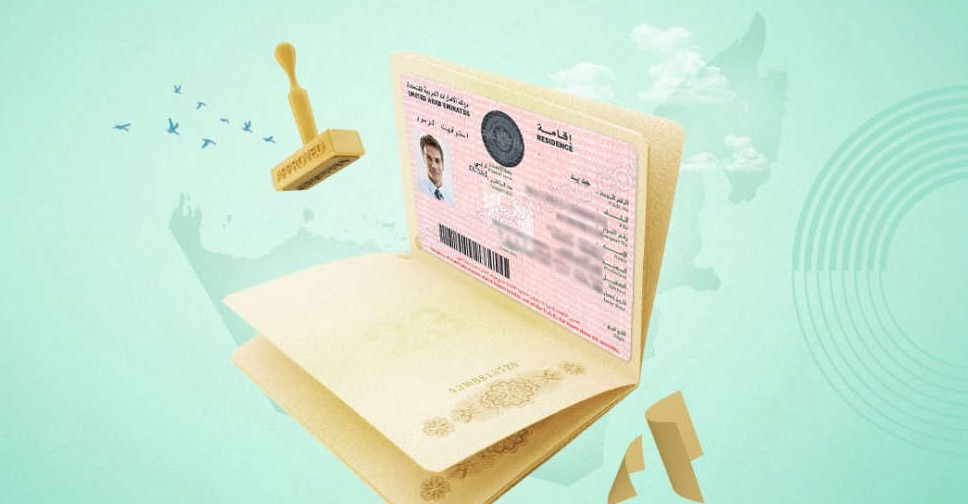 UAE debunks reports of lifetime Golden Visas for select nationalities
UAE debunks reports of lifetime Golden Visas for select nationalities
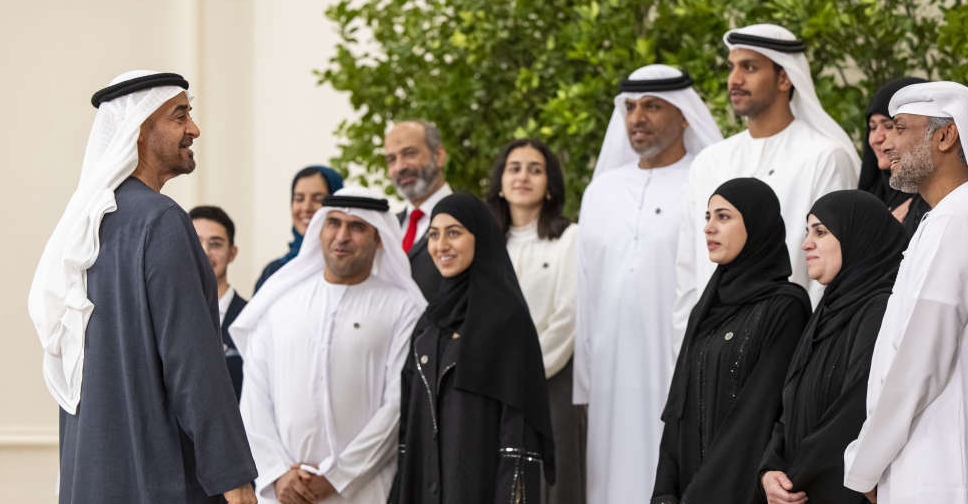 UAE President hosts special ceremony for UAE school top scorers
UAE President hosts special ceremony for UAE school top scorers
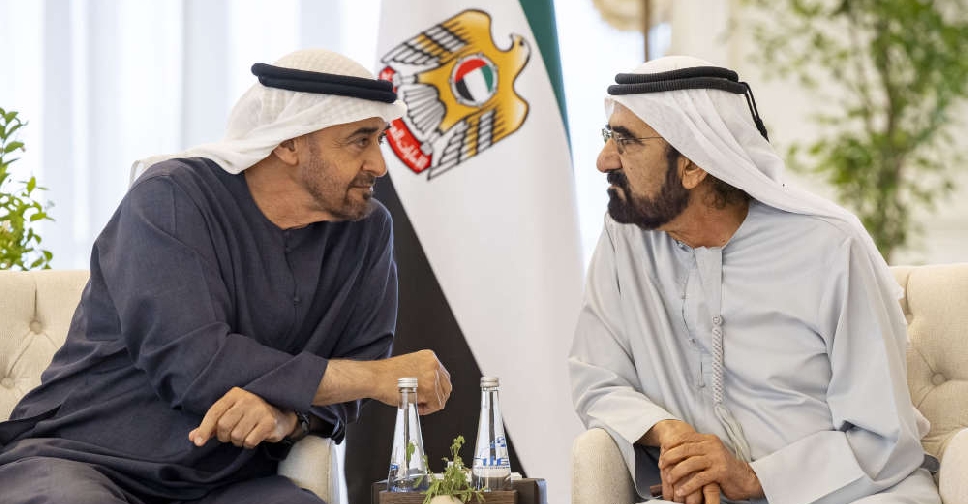 UAE leaders discuss citizen welfare and national progress
UAE leaders discuss citizen welfare and national progress
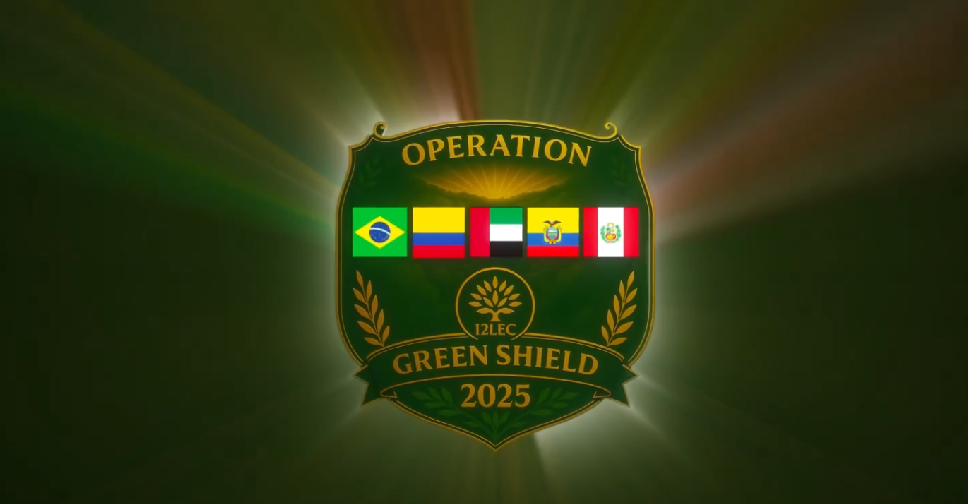 UAE coordinates major crackdown on environmental crime in the Amazon
UAE coordinates major crackdown on environmental crime in the Amazon
